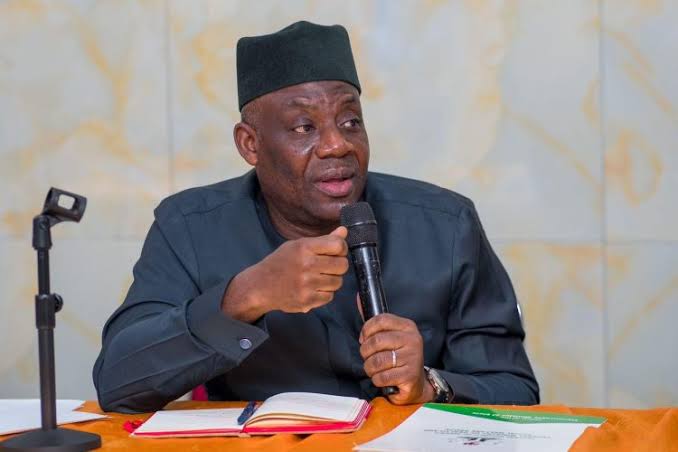The federal government will hold a crucial meeting with the Academic Staff Union of Universities (ASUU) in Abuja today, which is seen as a last-ditch effort to avert another nationwide shutdown of public universities.
The meeting, convened by the Minister of Education, Dr. Maruf Tunji Alausa, comes barely 48 hours after university lecturers staged nationwide protests to express frustration over the government’s failure to implement agreements reached with the union.
LEADERSHIP learned that the meeting is scheduled for 11 a.m. at the Federal Ministry of Education headquarters in Abuja.
Government officials, including the Minister of Labour, National Salaries, Incomes and Wages Commission (NSIWC) representatives, and the Solicitor General, are expected to join Dr. Alausa at the talks.
According to sources familiar with the agenda, the session would focus on finalising the renegotiated 2009 FGN–ASUU agreement and related reports, particularly the draft concluded in December 2024 under the Yayale Ahmed-led committee.
“This engagement reflects the Ministry’s commitment to constructive dialogue and collaboration in addressing key issues in Nigeria’s university system. Your coverage and presence will be highly valued,” a source told LEADERSHIP yesterday.
The report, formally submitted in February 2025, has remained unsigned despite repeated appeals by the union.
Union leaders insist that the government demonstrate seriousness by adopting and implementing the agreement without further delay.
Earlier this week, the Zonal Coordinator of ASUU Abuja Zone, Prof. Al-Amin Abdullahi, warned that the union’s patience had run out, stressing that the government had no excuse to continue stalling.
“The union has fulfilled its own part. Government must show commitment by signing and implementing the draft immediately,” Abdullahi said.
The 2009 agreement, first signed under late President Umaru Musa Yar’Adua, promised comprehensive reforms in Nigeria’s public universities, including revitalisation funding, enhanced conditions of service for academics, institutional autonomy, and a monitoring framework.
Successive administrations have failed to implement it, triggering recurrent industrial disputes. Analysts estimate that strikes by ASUU and allied unions since 1999 have cost the system nearly five years of lost academic time.
However, government insiders suggest that what differentiates the current process is Dr. Alausa’s approach, which has combined immediate remedial action with longer-term reforms.
Earlier this year, the Tinubu administration, through his intervention, released N50 billion to clear earned academic allowances (EAA) owed to lecturers. This debt had lingered for almost two decades and repeatedly triggered strikes.
Alausa has also spearheaded the Diaspora BRIDGE Initiative, a digital platform designed to connect Nigerian academics abroad with universities at home for mentorship, guest lectures, and research collaboration.
Policy experts, including Dr. Dakuku Peterside and Prof. Yemi Oke, have praised the initiative as a credible step toward turning brain drain into brain circulation.
Today’s meeting is expected to reconcile the various negotiation documents, including the original 2009 text and the Nimi Briggs recommendations, to map out phased financial commitments into the national budget and produce a legally binding framework for signature.
Minister Alausa’s stakes are equally high, converting early applause for the N50 billion settlement and the BRIDGE platform into a landmark agreement that can be signed, implemented, and sustained.
Today’s engagement could mark a turning point, transforming the 2009 agreement from a symbol of broken promises into a foundation for lasting stability in Nigeria’s universities.
However, obstacles remain. ASUU has rejected loan-style support funds in place of cash entitlements, while bureaucratic constraints, budget cycles, and fiscal pressures pose risks to rapid implementation.





